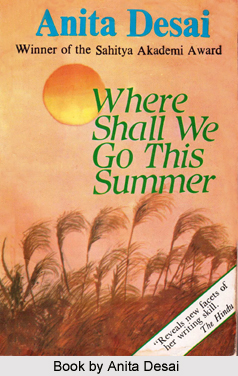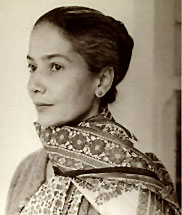 The evocative saga of escapism, the tuneful melody of the long lost songs of childhood is the central theme of the award-winning novel, “Where Shall We Go This Summer?â€.The storyline with its bold strokes of realities is an effort to illustrate the happiness of escaping from the realities to the land of utopia; hence the title aptly justifies the core theme. the novel ends however the taste remains.
The evocative saga of escapism, the tuneful melody of the long lost songs of childhood is the central theme of the award-winning novel, “Where Shall We Go This Summer?â€.The storyline with its bold strokes of realities is an effort to illustrate the happiness of escaping from the realities to the land of utopia; hence the title aptly justifies the core theme. the novel ends however the taste remains.
The ideal story weaver of the recent era, Anita Desai is a writer of her own class. Psychoanalysis of each and every female character makes her novel as if a journey to the maze minds. Born in the year 1937, Anita Desai with her deft characterization and with her remarkable anti romanticist approach so very eloquently brings out the dilemma, tension, fears, agony, frustration and love of the womanhood whilst making her each novel as if a saga of sheer realism. The idealistic world which each of her character wants to experience hence stands as the logo of that eternal longing of mankind. The story of Anita Desai ends but what remains is that lingering afterimage of the story.
 Synopsis:
Synopsis:
“Where Shall We Go This Summer?â€, an illustrious novel by Anita Desai is a story of an oppressed mind. Like all her earlier novels this particular novel also illustrates the tense nesses between family members and the loneliness, isolation and alienation of the middle-class women, Sita, the female protagonist of the story. The central character Sita in this novel "Where Shall We Go This Summer?" feeling the frustration of the suffocative four walls is seen taking refuge from her marriage at the utopian land of a magic island. Pregnant with her fifth child, Sita therefore desperately takes refuge from the mundane realities of her marriage to the island, which happens to be the homestead of her deceased father. It is when Sita feels that she is again pregnant for the fifth time then the irritations and grittiness of life becomes somewhat heavy to bear for her. She makes an attempt to shut down emotionally and isolate herself from the daily chores. It is then she feels the dire need to fade far away and dissolve to the utopian land, which is illustrated here as the island and the dwelling place of her dead father. The catastrophe of the story lies where Sita is seen perturbed with the very idea of bringing another child, as it is indeed something more than what she can handle. She physically escapes to the island and hopes to remain pregnant forever with the baby. A neat summation and a tidy approach makes where shall we go this summer? a heart-rending story of a dejected female.
The unusual situation of life is skillfully crafted in the novel. The story ends leaving the feeling of an intense pain of a young middle class wife who so passionately desires to bid bye the hypocrisy and boredom of her daily existence.
Published by Vision Books Pvt Ltd, India and Architectural Book Publishing Company, this book stands as the portrayal of the unchanged realisms of life.
The concept of “escapism: both in the real and imaginary sense gains a profound diction in Anita Desai"s “Where Shall We Go This Summer?†precise narration perched between dexterous dramatization and innate sensibility makes the novel “where shall we go this summer†an account of sheer reality. Deep insight, flawless style and that matchless intensity of the psychoanalysis that Desai does in this novel make it a rare work of mellowness and concord.













